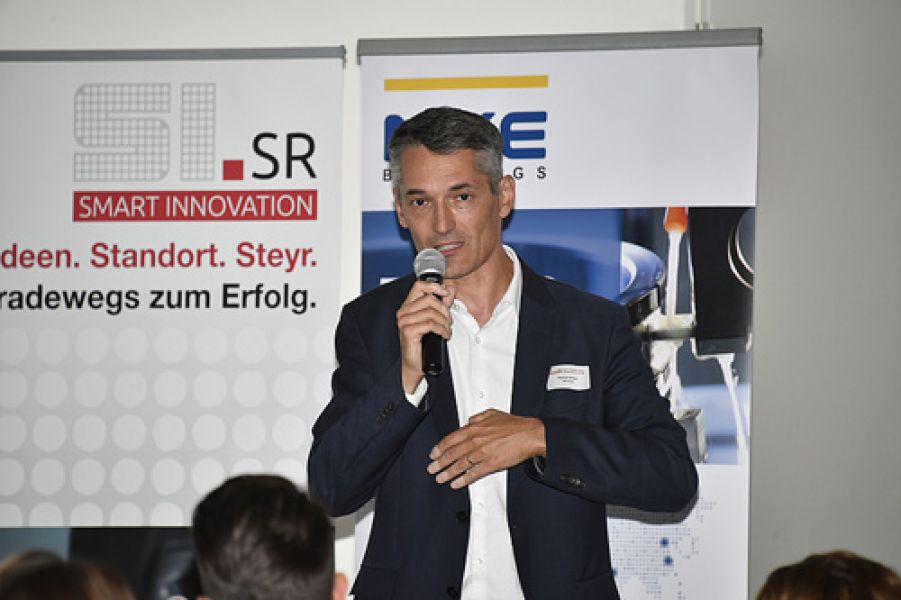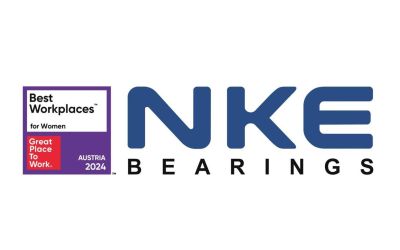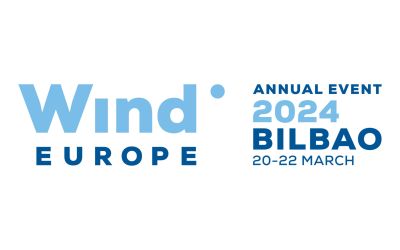Steyr, June 2019 - NKE Austria GmbH in Steyr, Austria, will demonstrate how digitalisation is used as a motor for efficiency increase and product development in a medium-sized manufacturing company.
NKE Managing Director Thomas Witzler sees four aspects to digitalisation : "First, digitisation as a disruption or change in the business model. Second, digitalisation in processes as continuous improvement. Third, digitalisation in the product, and fourth, digitalisation in production."
The managing director is the driving force behind the digitalisation of the bearing manufacturer. "We will always have enough work, but what and how we work will change," explained Witzler during a presentation on digitalisation as an opportunity at the Smart Innovation Steyr Stammtisch 4.0 on 3 June 2019 at NKE in Steyr. On a recent trip, he got new impulses from Silicon Valley, "to keep his finger on the pulse and create change together with the employees". So he continues to provide his management team with input and reading recommendations and asks himself two questions in particular: "What would have to happen if we were to fall out of business? And how can we use technology in the short term to remain competitive?"
Through this rethinking, NKE has been able to increase efficiency, productivity and customer value. A saving of 700 working hours, equivalent to 90 working days, speaks for itself. A few years ago, thousands of forms, invoices and delivery notes were passed from hand to hand in paper form until they finally gathered dust in the archive. Now the credo is "paperless office". All documents are received and stored electronically. "Optimisation has always been a priority for us, but over the past 18 months, digitalisation projects have been intensified. There is a clear focus on increasing efficiency," explains Veronika Krempl, Head of Information Management at NKE. The "paperless office" alone has saved about 150 working hours and reduced printing costs by 40,000 sheets per quarter. Krempl describes some of the advantages: "Thanks to the digitalisation of the process steps, there are no more duplicate entries of incoming invoices. All in all, digitization has brought process cost savings of at least 5,500 Euro per year only in this area".
Step by step, processes are optimized and digitized. As soon as Krempl sees someone with a piece of paper, the alarm bells ring. She takes time for her colleagues and has their work steps explained in detail. Then she structures and considers how to digitally automate the previous manual processes. "I am pleased that many ideas come from the employees themselves. In this way, the digital changes are accepted and lived", says Krempl. In digitizing the company, the IT manager is working closely with those responsible in the various departments. Repetitive work is being explored in order to simplify it with digital processes. For example, the changeover to paperless for the creation and dispatch of outgoing invoices has resulted in savings of around 380 working hours.
Communication is an important factor in the digitalization of a company. At NKE, ideas have moved from sales to purchasing. Juraj Mlynsky, Head of Procurement at NKE, still remembers the complicated process steps involved in sending an order. "Instead of six process steps, it is now just one: a key combination and send," says Mlynsky enthusiastically. 140 working hours could be saved and used for more meaningful work.
In cooperation with Gabriele Steininger, Head of Demand Chain Management, the web shop was reprogrammed and attention was paid to improving usability for the customer. Manual entries were reduced, order entry was simplified and the availability check was optimized. "Here we have created a good opportunity to optimize processes. We can invest the time saved in our customer service and thus generate customer benefits. Our overnight service in particular brings greater efficiency and benefits for the customer," concludes Steininger.
The list of practical examples for the digitalization of process steps is long. At NKE, digitalisation also takes place in product development. Klaus Grissenberger, Head of Advanced Engineering at NKE, provides an insight. He presents the new modular sensor system for rolling bearings, MoSS for short. This is a 100 percent wireless sensor system that evaluates sensor values such as speed, temperature, load, direction of rotation, vibration, etc. "MoSS allows networking with classical mechanical engineering
 Chinese
Chinese









